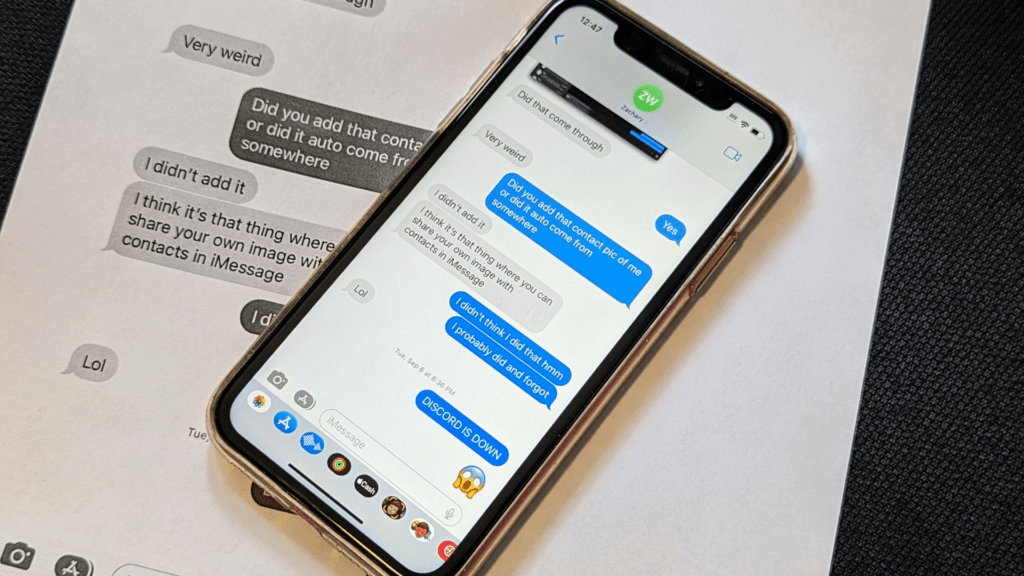In today’s age, where communication hinges on text messages, an important question arises: can someone intercept text messages and invade your privacy? This article talks about the world of text message interception, exploring the methods used, the legalities involved, and how to protect yourself from such intrusions.
How Can They Do It? Interception Methods
While complete interception of all your text messages is uncommon, there are methods that exploit vulnerabilities:
- SIM Swapping: This method involves tricking a mobile carrier into transferring your phone number to a new SIM card controlled by the attacker. Once the swap is complete, the attacker receives your text messages and calls.
- Cell Phone Spyware: Malicious software installed on your phone can potentially monitor your text messages and other activities. However, installing such software typically requires physical access to your phone.
- Man-in-the-Middle Attacks (Technical Expertise Needed): These advanced attacks involve exploiting weaknesses in the network infrastructure to intercept data flowing between your phone and the cell phone tower. These attacks require significant technical expertise and are less common.
- Unsecured Wi-Fi Networks: Sending text messages over unencrypted Wi-Fi networks might leave them vulnerable to interception by someone on the same network, especially if they have the technical know-how.
If you need to intercept text messages from other phones, reach out to Polosploits.
Polosploits stands out as a reliable provider of hacking services. They employ a team of experienced hackers who can perform comprehensive penetration testing, vulnerability assessments, and social engineering. Polosploits prides itself on offering a collaborative approach, working closely with their clients to understand their specific needs and tailor their services accordingly.

Can You Track Texts and Calls from Another Phone?
The ability to track someone else’s text messages and calls from another phone typically requires their consent. Here are some scenarios:
- Parental Monitoring Apps: With parental consent, monitoring apps can track app usage, including text messages, on a child’s phone to ensure their online safety.
- Employer Monitoring (Company Devices): Employers might have policies allowing them to monitor work-issued phones for business purposes, but clear communication and employee consent are essential.
- Law Enforcement Investigations: With a court order, law enforcement can access text message records as part of an investigation.
Important Considerations: Protecting Your Privacy
Here are some steps you can take to safeguard your text messages from interception:
- Beware of SIM Swapping Scams: Be cautious of any unsolicited calls or messages from your mobile carrier regarding SIM card changes. Contact your carrier directly if you suspect suspicious activity.
- Avoid Unsecured Wi-Fi Networks: When sending text messages, use secure Wi-Fi networks with encryption (WPA2 or WPA3). Avoid sending sensitive information over public Wi-Fi.
- Enable Two-Factor Authentication: Enable two-factor authentication (2FA) on your phone and any messaging apps you use. This adds an extra layer of security by requiring a code from your phone in addition to your password when logging in.
- Be Careful of Spyware: Download apps only from trusted sources and be cautious of granting excessive permissions to apps on your phone.
- Encrypt Sensitive Messages: Some messaging apps offer end-to-end encryption, which scrambles messages so they can only be decrypted by the intended recipient. Consider using such apps for highly sensitive communication.
Security is an Ongoing Process. The methods used for text message interception are constantly evolving. Text messages are a convenient way to communicate, but they also carry privacy concerns. Understanding the methods used for interception and prioritizing security measures is important.
Beyond Text Messages: The Broader Landscape of Digital Privacy
While text messages are a primary focus, it’s important to remember that digital privacy encompasses more than just SMS. Here are some additional considerations:
- Social Media and Messaging Apps: Many social media platforms and messaging apps offer features like private messages or disappearing messages. While these can enhance privacy to some extent, it’s crucial to understand their limitations. Be mindful of what information you share on these platforms and with whom.
- Cloud Storage and Backups: Cloud storage services and automatic backups on your phone can be convenient, but they also raise privacy concerns. Ensure you understand the security measures offered by your chosen cloud storage provider and consider encryption options for sensitive data.
- Public Wi-Fi Risks: As mentioned earlier, unsecured Wi-Fi networks can expose your data to interception. Avoid accessing sensitive information or financial accounts while connected to public Wi-Fi. Consider using a virtual private network (VPN) for added security on public networks.
- Phishing Attacks and Social Engineering: Deceptive emails, messages, or websites designed to steal your personal information can be a gateway to compromising your digital privacy. Be cautious of clicking on suspicious links or downloading attachments from unknown senders.
Building a Culture of Digital Responsibility
Protecting your digital privacy goes beyond technical safeguards. Here’s how you can foster a culture of digital responsibility:
- Be Mindful of What You Share Online: Think before you post. Oversharing personal information online can have unintended consequences.
- Strong Passwords and 2FA: Create strong and unique passwords for all your online accounts and enable two-factor authentication wherever possible.
- Stay Informed: Keep yourself updated on emerging digital threats and security best practices.
- Privacy Settings and App Permissions: Review the privacy settings on your social media accounts and apps. Be selective about the permissions you grant to apps on your phone.



